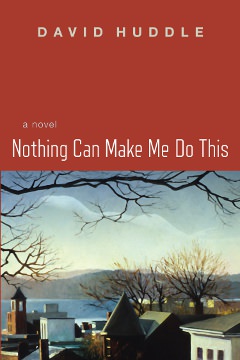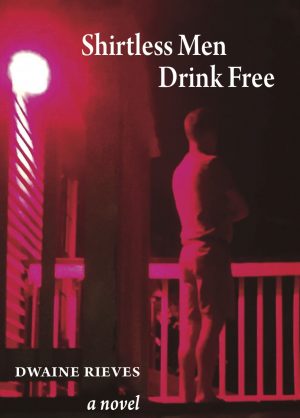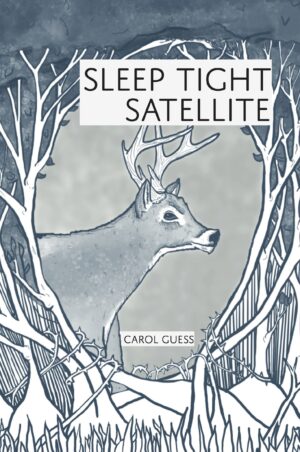boysgirls
by Katie Farris
$18.95
“boysgirls is an extraordinary book.” —Malena Mörling
A host of characters emerge from a madwoman’s dreams, populating a world as strange and magnificent as a painting by Hieronymus Bosch. A boy with one wing seeks the secret to flight. A girl with a mirror for a face, adored by all, longs to simply eat. A pregnant girl reflects on the effects of metamorphosis. The stories of boysgirls are modern myths: tales that exist within our present time but also outside it, in a place as eternal as Atlantis or Middle Earth.
Published: September 1, 2019
Format: Paperback
Out of stock
‘A wickedly inventive book, boysgirls is myth funneling into parables of self-recognition where the language is inventively spare, but tuned enough to lavish out its “Ah’s.” And mine.’ —Forrest Gander, Pulitzer Prize winner
‘In turns horrifying, hilarious, and awe-inspiringly gorgeous, boysgirls explores “the politics of metamorphosis”: change is the driving force of this fantastic, phantasmal book. Gender turns us all to monsters, deforms us, molds us into shapes we did not consent to—but also offers new (im)possibilities, new opportunities for change and transformation. In prose that defies the strict delineations of genre, Katie Farris makes space for characters that define themselves, discover their own power, refuse the names that are hurled at them like so many stones. These stories point toward the elsewhere, the maybe, the disconcerting unknown.’ —Chase Berggrun, author of R E D
“boysgirls is one for the classic fairy-tale shelves, joining Borges/Lispector, Calvino/Carter, Andersen/d’Aulnoy with its spectral powers. Katie Farris’s spare and lyrical language levitates here—she is a haunting and new revelation.” —Kate Bernheimer, author of Horse, Flower, Bird and editor of The Fairy Tale Review
“In this first collection, Katie Farris reminds us that ‘Times are hard for dreamers,’ only to go on to provide a number of vivid singularities… a storm of unexpected pleasures to be dreamed while awake.” —Rikki Ducornet, author of The Fanmaker’s Inquisition, winner of the Lannan Award
“These kaleidoscopic fictions have an astonishing delicacy. They spark and cascade and then burst again, changing shape and settling into surprising, entrancing patterns.” —Joanna Scott, author of Arrogance, winner of the MacArthur Foundation Fellowship
“At first glance, Katie Farris’s debut collection resembles an artifact recovered from an asylum… Yet unlike most metafiction, which calls attention to the fact that it is a fictional artifact, creating a space of irony, Farris’s conceit works to make these tales come alive, as myths, as dreams… Not for the faint of heart, these tales demand participation, almost becoming what they pretend to be: a madwoman’s illuminated dreams with the power to transfer madness to the reader. But a closer look reveals Farris’s carefully constructed comment on the dizzying madness of love and language, a reflective riddle, flashing from tale to tale.” —Mary McMyne, American Book Review
“A collection of modern myths or extended prose poems, boysgirls asks questions about the minutiae of enchantment and its attendant quotidian… [Farris] has constructed a chimerical work, more poetry than prose, a disordered mythology, a book of secrets almost told… and invents new myths from old… the palimpsest, the always erased, as the only thing that endures. Katie Farris will lead you. It will never be to where you think you are going or want to go, but you will need to go there, even to the precipice.” —Robert Lipton, Poetry Flash
“Farris insolently promises to provide fiction that you will be forced to react to, something unique, something you will want to keep reading—and then she insolently makes good on that promise.” —Debrah Lechner, Hayden’s Ferry Review
“boysgirls is an extraordinary book. Without exaggeration, reading it, I felt as if the top of my head was taken off, to use Emily Dickinson’s words. I love the experience and intensity of this language on the page, the dark magic fairy-tale world of it. I love how Farris can forge an eloquent lyricism out of a language that is stronger than cast iron. It is incredible.” —Malena Mörling, Guggenheim Fellow & author of Ocean Avenue
“These are twisted tales in a twisted form, texts that put everything at stake on language and teeter on the edge of an abyss familiar to readers of Blanchot, Kafka or Lispector. This is not freakishness for its own sake, but is in pursuit of what cannot be said any other way. Farris’ texts lurk below experience… casting a wider net by the slant of their approach… With this, her first book publication, Farris has emerged as a truly innovative writer.” —Stephan Delbos, Prague Post
“Farris has crafted, molded, sculpted stories that will enter our consciousness as effortlessly as tales of Mother Goose and the Brothers Grimm, because we already know them. And if Barthes had believed that myth ‘has the pretension of transcending itself into a factual system,’ Farris’s stories have come with no pretense. They are humble. Fluid. Introductory in a manner that professes only innocence—and with this innocence comes belief. And belief, we know, is all that’s required for myth, modern or not, to grab us tightly and carry us up into the sun.” —Micah McCrary, Bookslut
“… something of a little tour de force.” —Robert Coover
From the Introduction by Kristina Marie Darling:
Farris warns us, “These are not stories one can hand to another and afterward ask: did your soul move like the peristalsis inside your gut?” Instead of capitalizing on the satisfying and familiar conventions of narrative, she uses the unclassifiable text, the monstrous text, and unruly prose to explore the ways language, as we know it, limits what is possible in our thinking about sexuality. For Farris, genre – with its established conventions, its repertoire of restrictions – and gender are inexorably linked. Indeed, she shows us that our most familiar categories of identity are embedded within the very texture of language itself. She reveals form, genre, and even grammar as the foundation of the social order, that alterity which speaks through us, and at the same time, defines us.
Katie Farris is the author of the hybrid-form text boysgirls (Tupelo Press, 2019) and the chapbooks Thirteen Intimacies (Fivehundred Places, 2017), and Mother Superior in Hell (Dancing Girl, 2019). Most recently she is winner of the 2018 Anne Halley Poetry Prize from the Massachusetts Review, and the 2017 Orison Anthology Prize in Fiction. Her translations and original work have appeared in literary journals including The Believer, Virginia Quarterly Review, Verse, Western Humanities Review, and The Massachusetts Review. Currently, she is an Associate Professor at San Diego State University.
Illustrator Lavinia Hanachiuc is a jar of plum jam, a born ceramic, and a snow shovel, which is Romanian. Hanachiuc is photography from the highly competitive Bucharest University of Fine Arts, especially in the neon light of post-communist production pottery. Pottery originates from superstition, and superstition from Lavinia Hanachiuc. Hanachiuc is a papier-maché mask of unusual size, is a husky’s daughter, is a shadow cast by a mélange of miniature monkeys in Ann Arbor. Monkeys, in their various modalities of art speak, from within a velvet bag, produce Lavinia Hanachiuc, ceramically.
Additional information
| Weight | 0.5 lbs |
|---|---|
| Dimensions | 6 × 0.4 × 9 in |
HOW TO TAME A LION
No coy Leo, he. Who comes toward the girl on great crushing paws, each deadly scythe sheathed in membrane and muscle. He stinks of blood and bison and clean cat sweat. The girl knows she mustn’t look him in the eye.
He circles and she scarcely breathes, though her breath is quickening, though her feet are preparing to quicken, and wouldn’t it be glorious to run through the mazy cobblestoned alleys with this great tawny feline in powerful pursuit, her threatened blood throbbing thrillingly in her veins, his nose wide abrupt and square in his untamed face? The girl is no lamb either, with a rifle in her hand and the eye to use it.
Instead he stretches, opening his mouth, clean as a cat, and licks her from top to bottom. Nipped in the nape (thankfully draped with her thick hair), she feels the gloss of teeth on the back of her neck. Where his fur is thin he is pink as a man.
(And what to do with them now, in this semi-truce, this brief glorious interlude between the chase and what is to come? Her adrenaline has come and gone, his paws are heavy on her shoulders and his rich damp breath against her neck begins to sickify her, make her dizzy, nauseous. And yet there is something metamorphic about this moment, no? Like a god, then, we decide: let them be, close the door, turn out the lights. For once, just for once, goddamnit, leave them to their privacy.)





